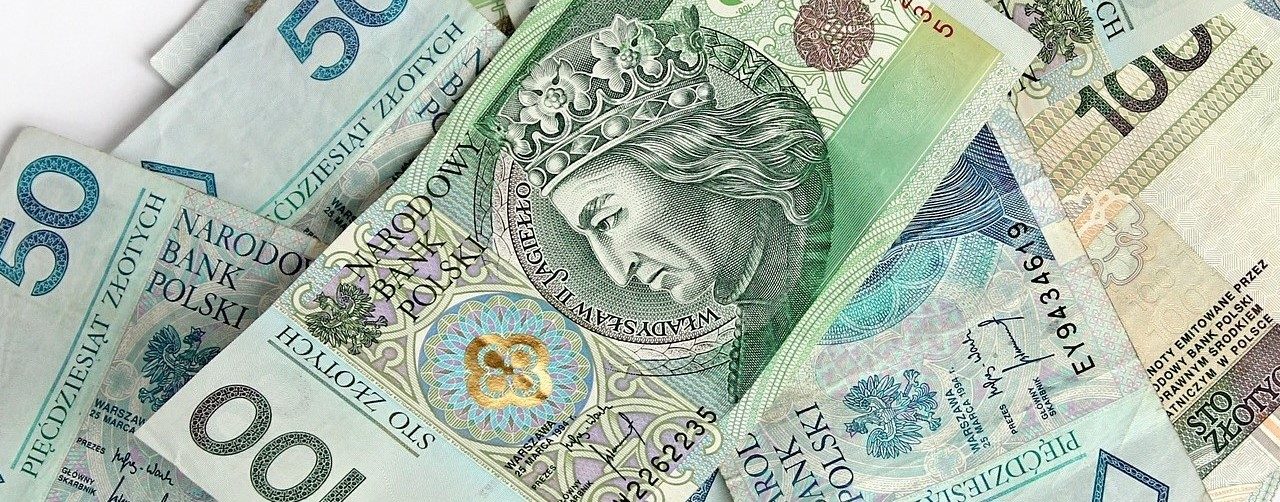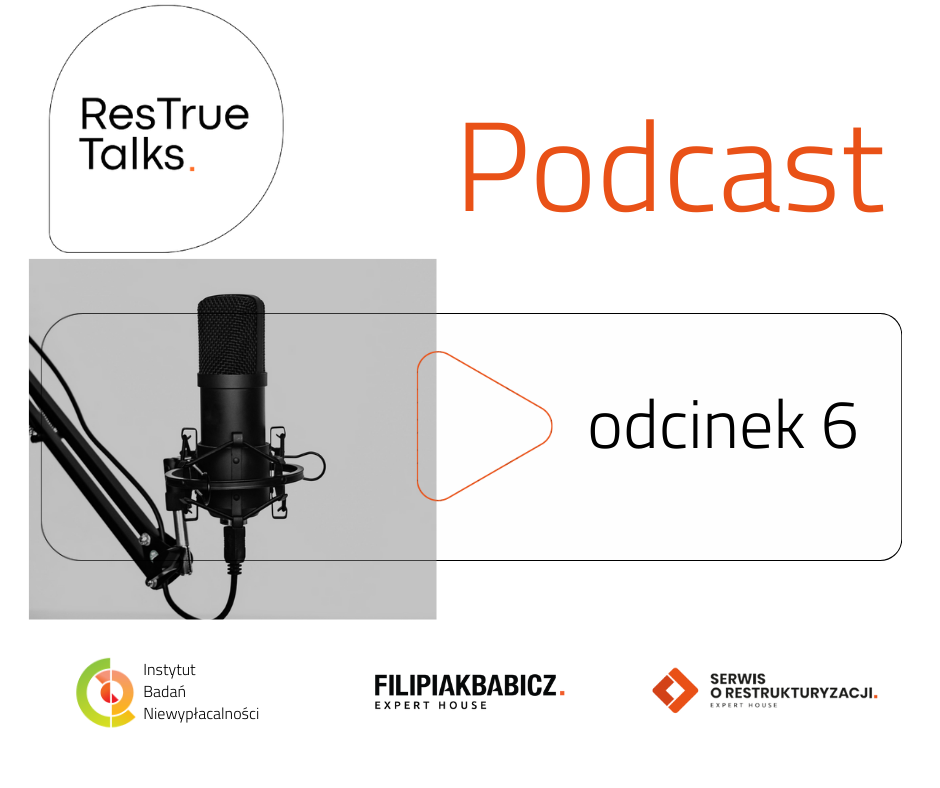
Entrepreneurs in restructuring excluded from support under the Financial Shield of the Polish Development Fund

Implemented through the Polish Development Fund, the Government’s Programme of Financial Support for Enterprises “Financial Shield of the Polish Development Fund (“PFRF”) for Small and Medium Enterprises” (hereinafter referred to as “Financial Shield” or “Programme”), has been adopted by the PFRF on the basis of Article 2(1) of the Treaty establishing the European Community. 21a(1) of the Act of 4 July 2019 on the system of development institutions (SIR Act) amended by the Act of 31 March 2020 amending the Act on the system of development institutions (Journal of Laws, item 569), as one of the forms of State aid for entrepreneurs as part of the fight against the coronavirus epidemic.
WHO CAN APPLY FOR SUPPORT?
Pursuant to Article 21a of the SIR Act, the Council of Ministers may entrust the Polish Development Fund with the implementation of the government programme of granting financial support to entrepreneurs, including in a non-returnable form. Thus, the conditions of participation in the Programme are not defined at the statutory level – the Act is the legal basis for the adoption of the Programme, but detailed conditions of participation are defined in the regulations adopted by PFR (Regulations for applying for participation in the government programme “Financial Shield of the Polish Development Fund for Small and Medium Enterprises”, hereinafter: “Regulations” available here).
FOR MICRO, SMALL AND MEDIUM-SIZED ENTERPRISES
The Program is addressed to micro, small and medium enterprises (for large entrepreneurs PFRF has prepared a separate program, which is waiting for the green light from the European Commission) and the basic instrument of financial support for enterprises under the Program are financial subsidies, granted for 3 years, with a 12-month grace period, the amount of which, depending on the size of the entrepreneur, may amount up to PLN 3.5 million. The Programme provides for the possibility of redemption of up to 75% of the value of granted financing if, within 12 months from the granted support, its beneficiary will continue its activity (redemption of 25%) and maintain a constant level of employment (redemption of up to 50%).
The condition for participation in the Programme is to demonstrate a decrease in economic turnover (sales revenue) by at least 25%, failure to pay taxes and social security contributions as at 31 December 2019 or as at the date of granting the financing. The Financial Shield does not provide as a rule for securing the granted subsidies, although it does reserve for PFRP the right to demand securing by the beneficiary (§ 10 point 13 f(c) and (d) of the Regulations).
Unfortunately, the Programme also provides for other conditions which will make it impossible for entrepreneurs against whom restructuring proceedings are conducted to take part in it.
According to the Regulations (§ 10 point 8 f) both with regard to the forms of support for micro, small and medium entrepreneurs, only the Beneficiary may take part in the Programme, with regard to whom, as at the date of submitting the application, no restructuring proceedings within the meaning of the Restructuring Law were opened.
In accordance with this provision, only those entrepreneurs will be excluded from participation in the Programme with respect to whom the court has already issued a decision on the opening of restructuring proceedings. Entrepreneurs who have submitted an application for the opening of the restructuring process do not, in theory, have to withdraw their already submitted application if they want to apply for aid under the Financial Shield at the same time, but they have to bear in mind that the granting of aid to them will depend on whether the restructuring application will first be recognised or the application under the Financial Shield, which is difficult to predict with certainty.
The rules for using the Financial Disc do not stand in the way of an entrepreneur applying for aid under the programme first and then, after receiving a subsidy, applying for the opening of restructuring proceedings.
Write-off under the agreement hope for entrepreneurs?
In both of the cases described above, however, the entrepreneurs will have to reckon with the impossibility of taking advantage of the privilege to redeem part of the subsidy. According to the terms of the Programme (§ 4(4) and § 5(3)(a) of the Regulations), the subsidy received under the Programme is to be reimbursed in an amount representing 100% of the value of the subsidy, in the case of, inter alia, the opening of bankruptcy or restructuring proceedings, at any time, within 12 months of the date on which the subsidy was granted.
The PFR’s claim for the refund of the granted subsidy as a receivable arising before the opening of restructuring proceedings will, as a rule, be covered by the agreement. In view of the fact that the Polish Development Fund is a State Treasury company and that the money for the Programme will come from the State budget (pursuant to Article 21a(4) of the SIR Act), PFR’s debt will be a public-law debt whose partial cancellation in the arrangement should be established in accordance with the rules on State aid (Article 140 et seq. pr. rest.).
So, despite the obligation to reimburse 100% of the values included in the operations in which you need to resolve the restructuring for your users within 12 months of receiving the aid, it may be taken into account that the final amount must be lower. This, however, will depend on a number of factors, primarily the fulfilment of the so-called private creditor test and the outcome of the vote on the debtor’s arrangement proposals.
In the context of subsequent opening of restructuring proceedings and bankruptcy proceedings it is also worth noting the wording of section 1 in fine of Article 21a of the SIR Act, which provides that funds coming from the financial support referred to in section 1 granted to entrepreneurs shall not be subject to judicial or administrative enforcement, unless the enforced claim arose due to a breach of the rules under which such support was granted to a given entrepreneur.
Taking into account the fact that in bankruptcy proceedings, among other things, measures excluded from enforcement according to the provisions of the CCP (Article 63(1)(1) of the CCP) are excluded from the bankruptcy estate, and in restructuring it was not decided to introduce a similar provision at all, it seems that the amounts of the subsidies will be in the bankruptcy/completion/sanction estate and will be protected against enforcement on general principles.
Problem of the proceedings for approval of the arrangement
The indication that 100% of the subsidies will be reimbursed to entrepreneurs for whom the “restructuring procedure has been opened” naturally raises the question of what happens if the entrepreneur decides to conduct a procedure for the approval of the arrangement, in which no “opening of the procedure” occurs at any time. It seems that the lack of reference to this restructuring procedure in the Regulations is a kind of omission that may be misleading. An indication of how to treat the procedure for the approval of the arrangement can be found in the “Guide for micro, small and medium-sized enterprises to the financial shield of PFR” prepared by PFR, which contains “a description of the programme and financing conditions”. On page 9 (point 2.1.3.) of the Guide, we will find an explanation that as “opening of restructuring proceedings” PFR also means “decision to approve the arrangement”. This means that also the conduct of the procedure for the approval of the arrangement, which will be successful in the period indicated in the Regulations, will determine the necessity of returning 100% of the subsidy. This is an extremely important circumstance because, depending on when the agreement with PFR was concluded and when we set the arrangement date, the claim for the refund of the subsidy may be treated as an arrangement or current liability.
In addition, due to the fact that the provision “on the opening of restructuring proceedings” is equal to the provision “on the approval of the arrangement” in the Manual, it is reasonable to pose the question whether the company performing the arrangement can apply for the subsidy in question (finally, a decision on the approval of the arrangement was issued to it). It seems that the reference in the Guide to the decision to approve the arrangement was intended solely to close a gap in the procedure to approve the arrangement and does not apply to proceedings in which both the decision to open the procedure and the decision to approve the arrangement appear. However, it should be assumed that in the case of proceedings for the approval of an arrangement, it will potentially be possible to refuse to grant a subsidy if the approval of the arrangement took place shortly before the application was submitted to the PFR (if, according to the PFR, it is to be equivalent to opening the proceedings in other proceedings).
Terms and conditions of the Financial Shield and the EU public aid framework
The PFR, to which the government delegated the drawing up of the programme’s rules of procedure, did not have full freedom to set the conditions under which entrepreneurs can receive state aid. The conditions for granting it must be in line with the EU rules on State aid, which for the period of an epidemic regulate the temporary framework of State aid measures to support the economy in the context of the ongoing COVID-19 epidemic (European Commission Communication of 20.03.2020, 2020/C 91 I/01).
Despite this, it seems that the conditions for participation in the Financial Shield with regard to restructuring issues are more restrictive than the assumptions adopted by the European Commission. According to point 22c. of that Communication, aid may be granted to companies that were not in difficulty (within the meaning of the General Block Exemption Regulation on 31 December 2019). It may be granted to undertakings which were not in difficulty or which were not in difficulty on 31 December 2019, but which subsequently encountered difficulties or were in difficulty because of the COVID-19 epidemic.
It therefore seems that the Commission’s objective was to exclude from national State aid schemes those undertakings which were already insolvent or at risk of becoming insolvent before the outbreak of the coronavirus. However, it can be assumed that, among the undertakings to which the restructuring procedure was recently opened, a large proportion are those who were not yet in difficulty on 31 December 2019 and the reason for opening the restructuring was the COVID-19 pandemic.
Entrepreneurs in restructuring, if they would like to benefit from forms of aid and support dedicated to them, most probably have to wait for the Sejm to enact a law on granting public aid for rescuing or restructuring entrepreneurs, the draft of which was adopted by the government (Druk 300).













